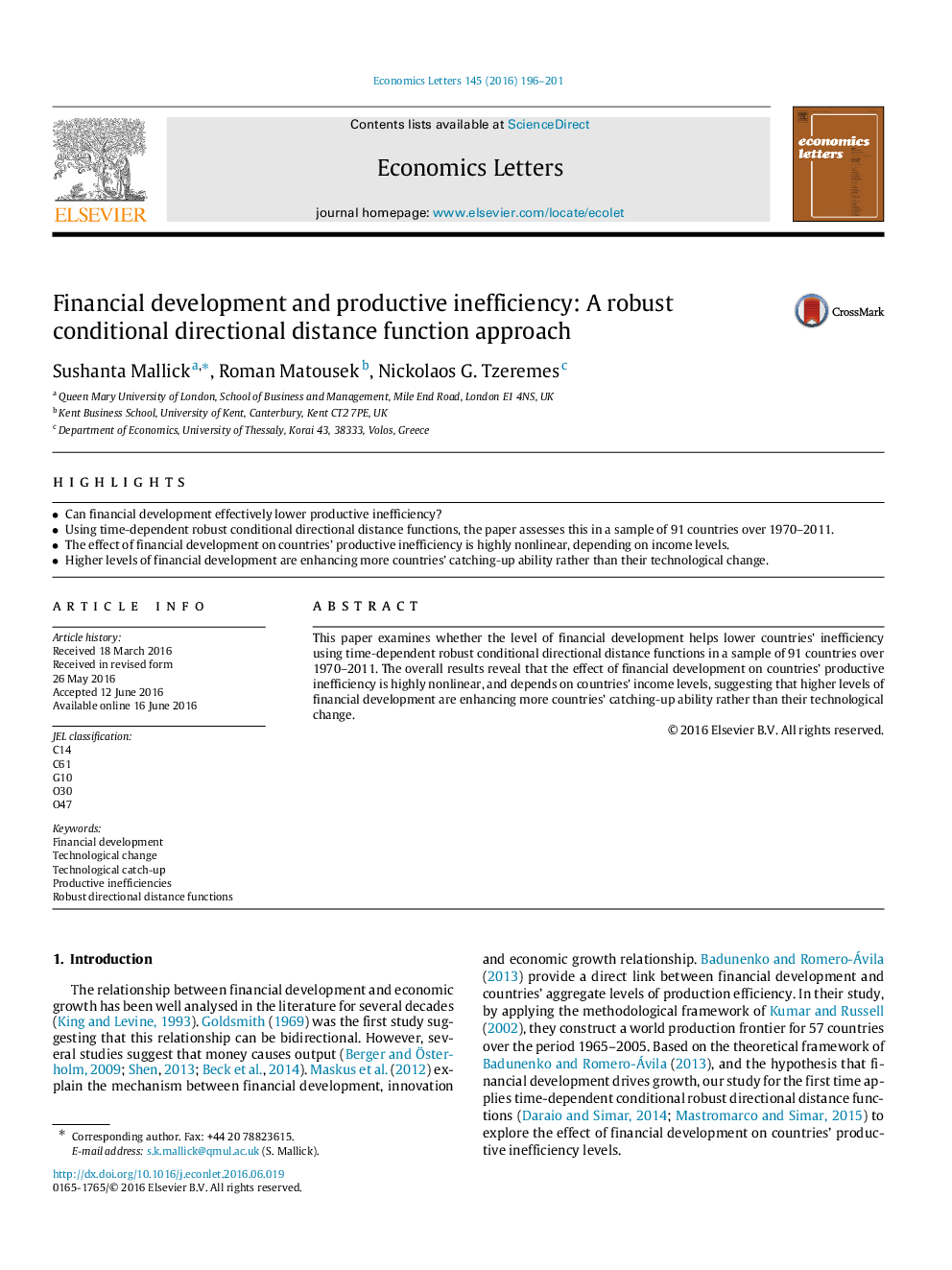| Article ID | Journal | Published Year | Pages | File Type |
|---|---|---|---|---|
| 5058220 | Economics Letters | 2016 | 6 Pages |
â¢Can financial development effectively lower productive inefficiency?â¢Using time-dependent robust conditional directional distance functions, the paper assesses this in a sample of 91 countries over 1970-2011.â¢The effect of financial development on countries' productive inefficiency is highly nonlinear, depending on income levels.â¢Higher levels of financial development are enhancing more countries' catching-up ability rather than their technological change.
This paper examines whether the level of financial development helps lower countries' inefficiency using time-dependent robust conditional directional distance functions in a sample of 91 countries over 1970-2011. The overall results reveal that the effect of financial development on countries' productive inefficiency is highly nonlinear, and depends on countries' income levels, suggesting that higher levels of financial development are enhancing more countries' catching-up ability rather than their technological change.
